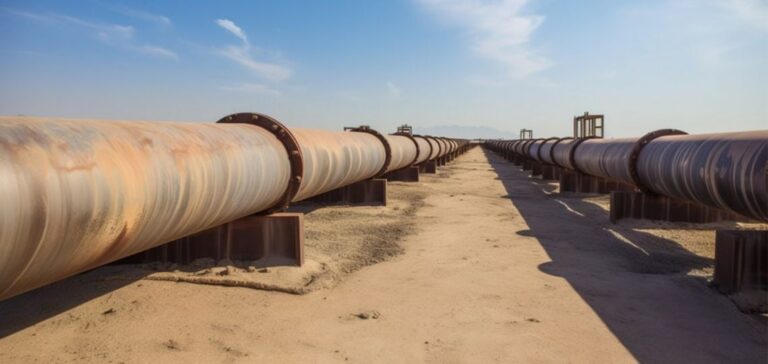Niger has resumed the export of its crude oil through the pipeline linking the Agadem oil field to the port of Benin, after an interruption due to political tensions.
This transport route, supported by investments from the China National Petroleum Corporation (CNPC), is crucial to the Niger economy.
The blockage was caused by political sanctions imposed by the Economic Community of West African States (ECOWAS), creating a dispute between Niamey and Cotonou.
The dispute concerned Niger’s ban on Beninese imports, a direct response to the initial ECOWAS sanctions.
This led to an interruption in Benin’s oil exports, stopping the flow of crude to international markets.
The situation has recently been resolved, allowing a million barrels to be loaded onto the Aura M tanker at the port of Cotonou, en route to China.
Strategic impact on regional markets
The resumption of exports is an important signal for the region’s energy markets.
This pipeline, with a capacity of 90,000 barrels per day, is essential not only for Niger, but also for trade flows in West Africa.
China National Petroleum Corporation, a key investor in this infrastructure, is closely monitoring the situation, knowing that the stability of these exports is crucial to its operations in Africa. The potential impact on diplomatic relations between Niger and Benin remains to be seen.
The restoration of this trade route could ease tensions, but the region remains politically fragile.
The sabotage incident in June, caused by a rebel group in Niger, highlights the continuing risks to this infrastructure.
Outlook for industry players
For energy professionals, the resumption of exports from Niger via Benin underlines the importance of securing infrastructures in high-risk areas.
Investments in politically unstable regions call for heightened vigilance and a detailed understanding of local dynamics.
Market players must also anticipate potential disruptions due to regional tensions.
Future developments in this area will be crucial in assessing the long-term impact on Niger’s oil exports and the region’s economic stability.
Although cooperation between Niger and Benin has resumed, it remains subject to the political and security uncertainties specific to West Africa.






















